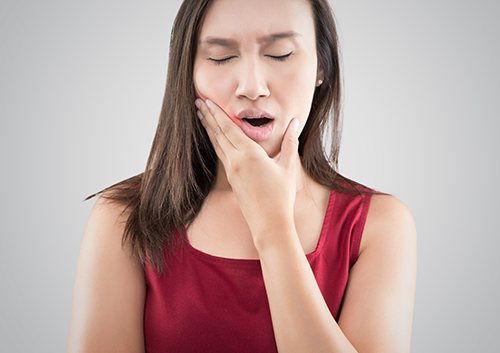Oral Health Concerns for Infants
April 11th, 2024

Because babies’ teeth don’t appear until around six to eight months of age, it’s a natural misconception that they don’t need dental care. But the steps you take as the parent of an infant can help your baby maintain good oral health and develop healthy dental habits in the future.
It’s easy to take care of a baby’s teeth and gums, especially when oral hygiene for your infant becomes part of the normal daily routine. Learn more about how you can promote good dental health for your baby with these tips and considerations.
Taking Care of Baby’s Oral Hygiene
- Dental Hygiene for Birth to Six Months. Cleaning your infant’s gums is as important as cleaning teeth will be later. Hold your baby in your arms, and with a clean, moistened washcloth wrapped around your index finger, gently massage his or her gums.
- Dental Hygiene for Six to 12 Months. After teeth begin to appear, it’s time to switch to a soft, children’s toothbrush for teeth cleaning. New research has shown that fluoride toothpaste is safe and recommended for use once your baby’s first tooth arrives. Gently brush your baby’s teeth after each feeding, in the morning, and before bedtime, just as you did before teeth appeared.
- Good Bedtime Habits. One of the most important things you can do to protect your infant from tooth decay is to avoid the habit of putting baby to bed with a bottle. Use other soothing bedtime activities, such as rocking and lullabies, to help your baby drift off to sleep.
- A Note about Dental Decay. Many people are unaware that dental decay is transmissible. Avoid placing your baby’s bottle, sippy cup, or pacifier in your own mouth to test the temperature. Likewise, don’t share utensils with your baby.
Partner With Your Dentist
Your baby should receive his or her first dental health checkup by the age of six months. Even though your infant may not have teeth yet, Drs. Keith Hinnant, Peter Klein, Philip Brantly can assess the risk your baby might face for oral diseases that affect hard or soft tissues. Drs. Keith Hinnant, Peter Klein, Philip Brantly can also provide you with instructions for infant oral hygiene, and explain what steps to add as your baby grows and develops.
Hinnant Family Dentistry is your partner for good oral health, and we’re here to make caring for your baby’s dental hygiene and health easier and more enjoyable for you.





